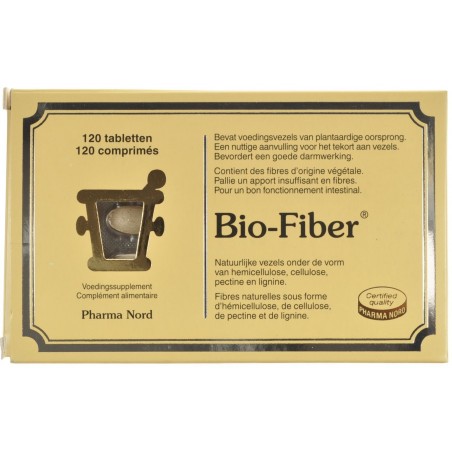- -10%



What is Dietary Fibre?
Dietary fibre is defined as material of plant origin which is resistant to degradation by digestive enzymes, passing essentially unchanged through the stomach and small intestine, until reaching the large intestine. Although dietary fibre is not absorbed by the body, it still plays an important role in the normal functioning of the digestive tract. Dietary fibre (i.e. fibre rich grain products, fruit and vegetables) comprised an extensive part of the typical diet of the population in the early 20th century.
Fibre content has fallen progressively throughout the 20th century, and modern diets with a high content of processed food contain much reduced or little dietary fibre. It is not just the overall level of fibre in the diet which is important, but also the relative amounts of the main types of fibre:- cellulose, hemicellulose, lignan and pectin.
What does Dietary Fibre do?
The components of dietary fibre have a filling effect, reducing hunger; they delay gastric emptying, and slow the absorption of food, thereby reducing post-prandial hyperglyceamia and buffering glucose intake. Dietary fibre components help maintain healthy functioning of the gastrointestinal tract, by decreasing intestinal transit time, assisting in the removal of toxic substances and increasing beneficial micro-flora in the large intestine. Dietary fibre components also help maintain healthy blood lipid levels by binding to (and promoting excretion of) cholesterol and bile acids.
How much Dietary Fibre should you take?
The Danish Veterinary and Food Administration recommend an intake of at least 30gm/day. It has been estimated that the typical modern Northern European diet contains as little as 15 gm/day of dietary fibre.
Are there adverse effects from taking dietary fibre?
Dietary fibre is generally well tolerated; however if the body is not accustomed to a dietary fibre rich diet abdominal discomfort (due to increased gas production resulting from fermentation by intestinal bacteria) may result. It is recommended to increase dietary fibre intake gradually, to give the digestive tract an opportunity to adjust to the change in dietary fibre content. Increased dietary fibre intake should be accompanied by an increased water intake (since dietary fibre adsorbs water), otherwise constipation may result. It is not possible to overdose with dietary fibre. Increased dietary fibre intake may interfere with the absorption of certain types of drugs, which should be taken separately.
About Pharma-Nord Bio-Fiber 80.
Each tablet of Pharma-Nord Bio-Fiber 80 contains 640 mg of vegetable fibre (dry matter) derived from sugar beet and apples, equivalent fibre content of 520mg (i.e.80%). Bio-Fiber 80 contains all of the dietary fibre types in appropriate proportions as follows: 120mg cellulose, 250mg hemicellulose, 130mg pectin, 20mg lignin. Pharma-Nord recommends 4-12 tablets/day. Bio-Fiber is manufactured under Danish pharmaceutical control.
The advice of your pharmacist:
The product Bio Fiber 80 Comp 120 is made (and / or distributed) with the highest quality standards by the company Pharmanord. On its Web site, with its experience in selling quality products, Pharmonet presents all the products of this brand available on the market.
However, if the product Bio Fiber 80 Comp 120 is not conform to your expectations for any reason whatsoever, do not hesitate to inform us and we will forward your comments directly to the company Pharmanord.